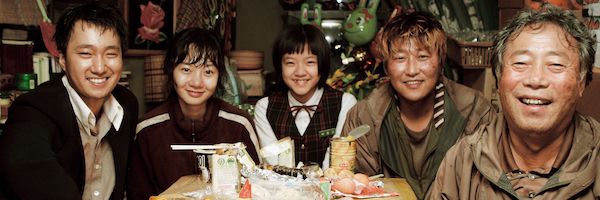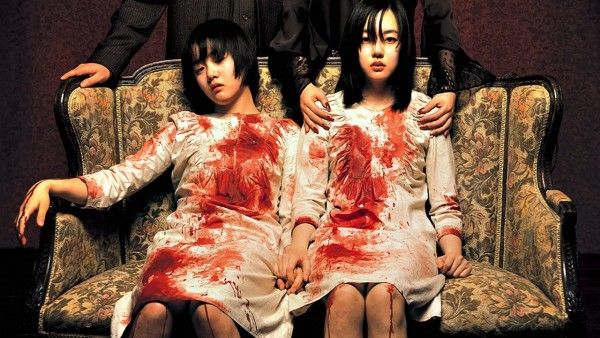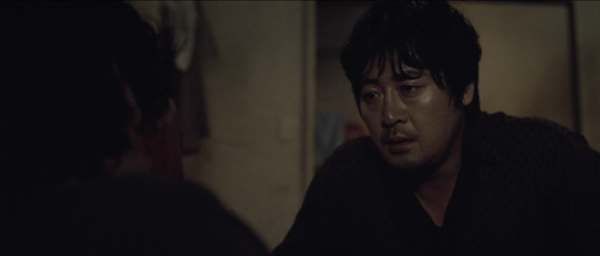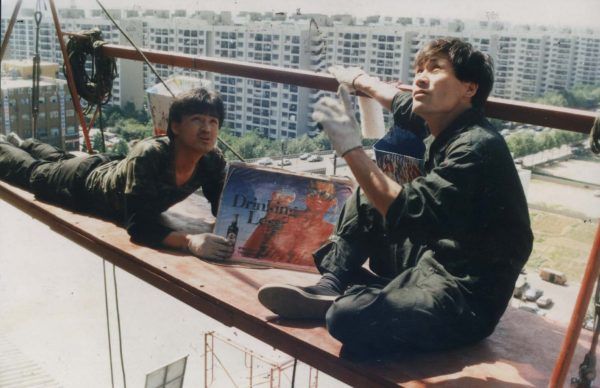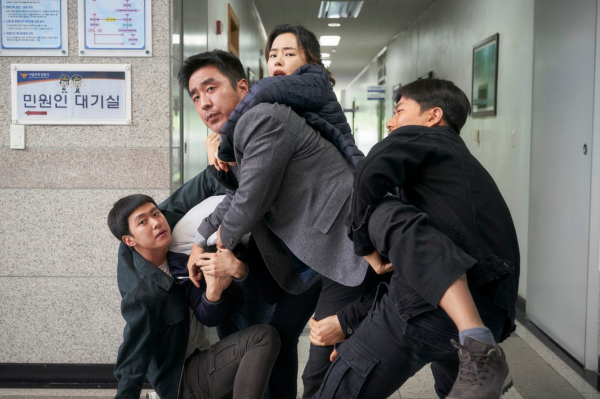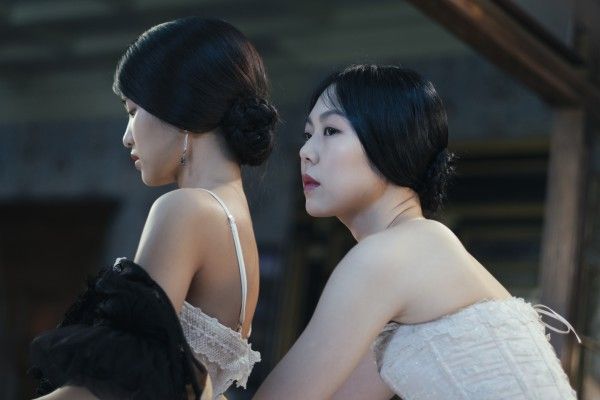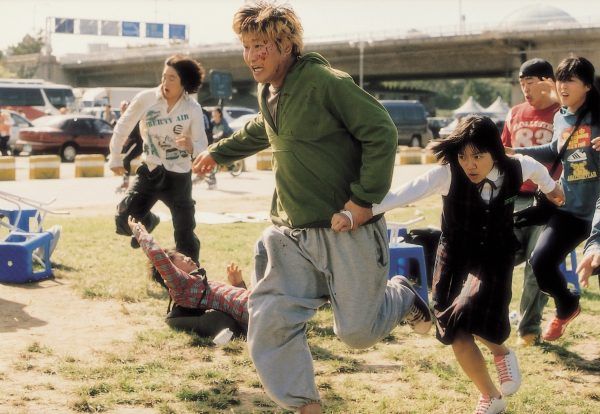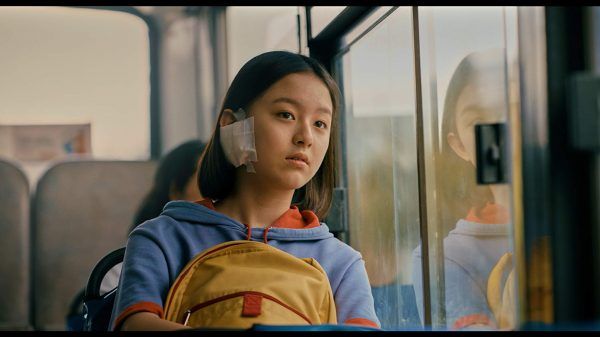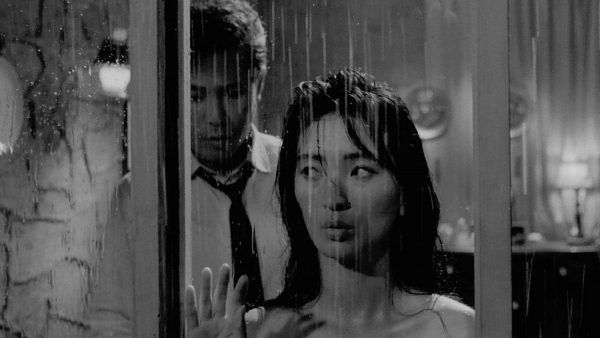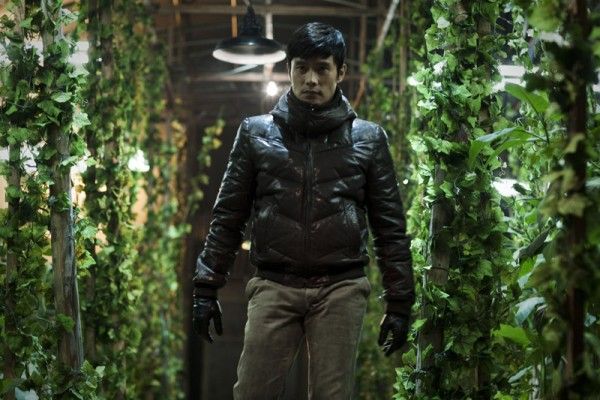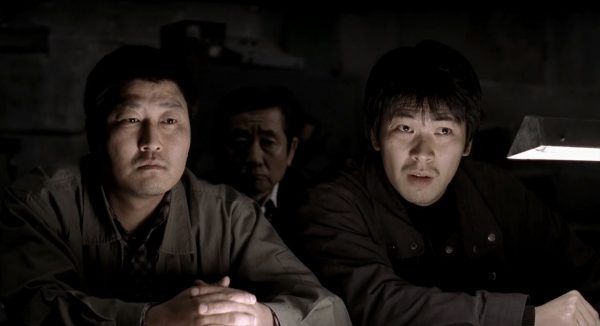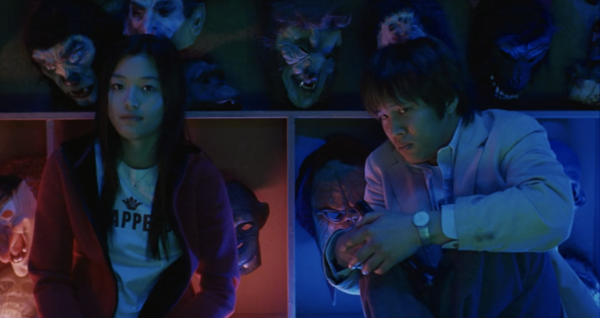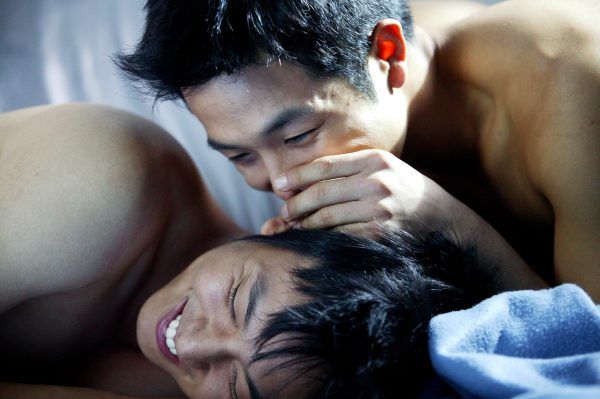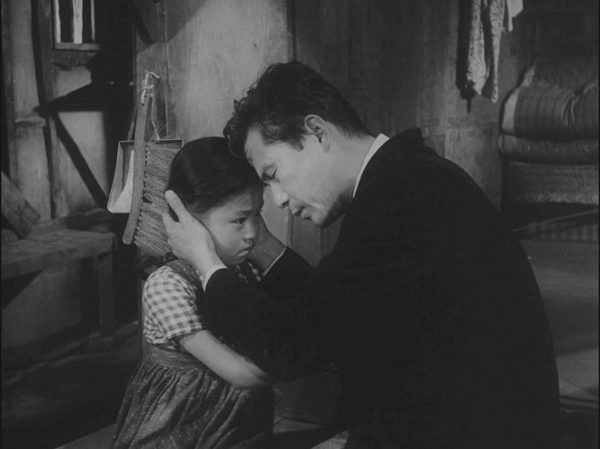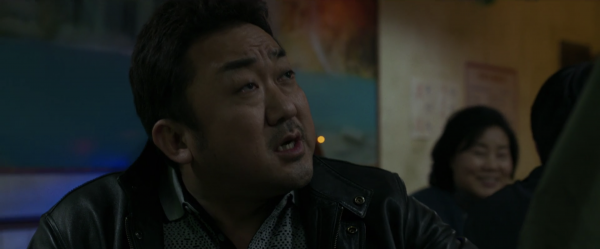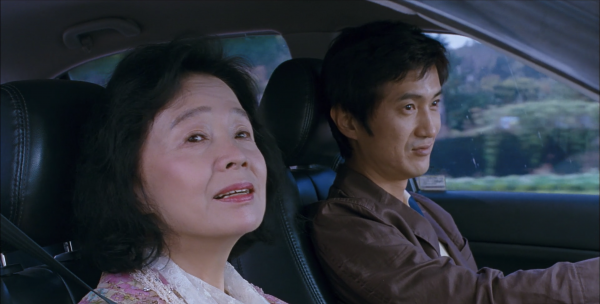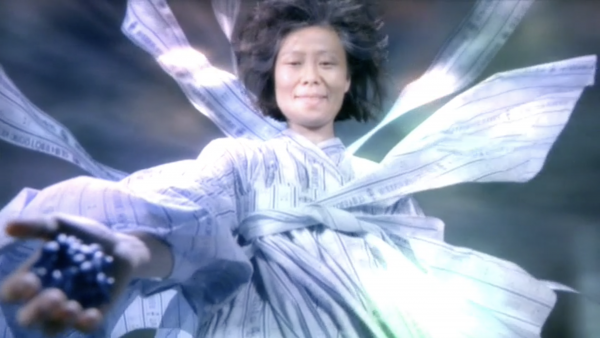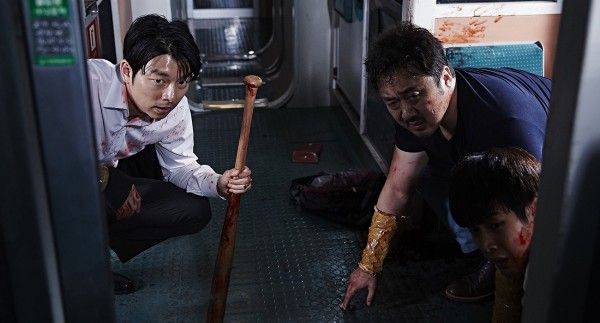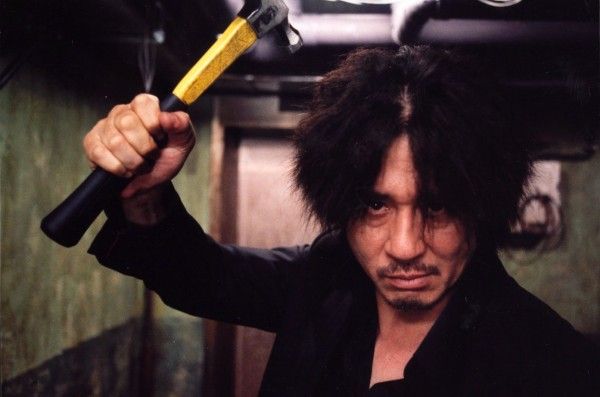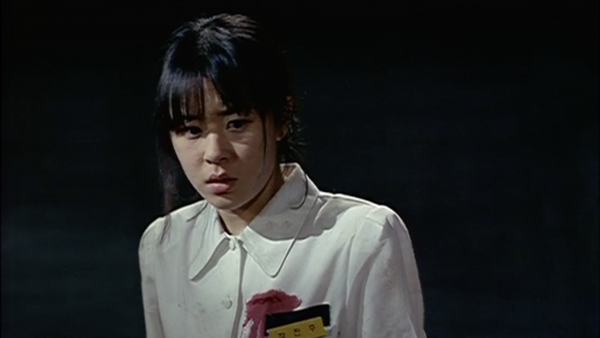At the 2020 Academy Awards, history was made. Parasite, the genre-bending, class-examining, “metaphorical” masterpiece from Bong Joon Ho and his incredible cast, won the Oscars for Best International Feature Film, Best Original Screenplay, Best Director, and Best Picture. Not only was this the first time any non-English language film won Best Picture, it was also the first time any South Korean film was honored at the Oscars in any way. If you saw Parasite, saw it get honored the hell out of at the Oscars, and are thinking to yourself, “I want more,” boy howdy am I excited to share the following list with you.
First: As many folks smarter than I have already observed, it is a bit reductive and Western-centric to collapse all of South Korean cinema together. “South Korean cinema” is not a genre, it is a country’s mode of artistic expression, and there are tons and tons of genres, different directors, and points of entry therein. However, the goal of expanding a film fan’s purview to other countries is, I believe, a noble one -- particularly when examined within South Korea’s history moving tumultuously from authoritarian rule to democratic independence, resulting in part in what’s oft-referred to as the Korean New Wave, an explosion of cinematic freedom resulting in some uniquely unified expressions of filmic experimentation and quality. As such, I’ve done my best to curate this list with an eye on variety and representation, while acknowledging this country’s particular history and national experiences.
Without further ado, film fans: Here are the 20 best South Korean films to watch if you couldn’t get enough of Parasite. And if you loved these -- go find yourself some more! It’s an entire country’s film industry, don’tcha know!
A Tale of Two Sisters
Director/Writer: Kim Jee-woon
Cast: Im Soo-jung, Moon Geun-young, Yum Jung-ah, Kim Kap-soo
“Traumas of the past weaving into a present tense, genre-soaked narrative” is a mode of expression for many films of the contemporary Korean New Wave. In A Tale of Two Sisters, from the masterfully bleak-and-tone-blending Kim Jee-woon, the traumas explored come from an ancient folktale of the Joseon dynasty, a kingdom that lasted for approximately 500 years in the area that we now know as Korea. Kim takes this folktale, a story involving the visceral abuse of stepmother against daughter and the spiritual reckoning that comes from ghosts, and soaks it in disturbingly surreal vignettes of blood, jarring interrogations of patriarchy, and a twist that punches you in the gut. A Tale of Two Sisters sticks to your bones like the best blunt horrors, and sticks in your heart like the best pieces of mythology (and if you’re into it, and want a similar film that plays a little more like dessert, check out Kim’s Western The Good, the Bad, the Weird).
Burning
Director: Lee Chang-dong
Writers: Oh Jung-mi, Lee Chang-dong
Cast: Yoo Ah-in, Steven Yeun, Jeon Jong-seo
Burning is not just the title of this film -- it’s the description of what will happen to your guts while you watch it! But, like, in a good way! Burning is an incisive, exacting, patiently-paced psychological thriller. And director Lee Chang-dong has found himself a sterling cast anchoring his excellent film, particularly Walking Dead star Steven Yeun, giving a simultaneously alluring and disturbing depiction of a manipulative, sociopathic mastermind. The film’s de facto detective is played by Yoo Ah-in, who is determined to find the truth about Yeun, as he’s dating Jeon Jong-seo, a former classmate whom Yoo likely has a crush on. And as Yoo stalks closer and closer to the truth (or, more accurately, “the truth”), Lee and co-writer Oh Jung-mi’s script confidently, subtly flips the statuses of power, of obsession, of paranoia, and of trust. You just might need a glass of ginger ale after watching this powerfully discombobulating film.
The Chaser
Director: Na Hong-jin
Writers: Na Hong-jin, Shinho Lee, Hong Won-chan
Cast: Kim Yoon-seok, Ha Jung-woo, Seo Young-hee
I love how so many South Korean genre pictures are willing to be long. These types of films (i.e. the aforementioned Burning) flow and explore every nook and cranny of their premise, easily besting two hours in length while not once providing any sense of boredom, and always keeping their audience enthralled. The Chaser is the exception that proves the rule. It clocks in just a little over two hours, which is not exactly the tightest a chase-based thriller could be paced at. But director Na Hong-jin, miraculously making his debut film, works tirelessly with editor Kim Sun-min to render The Chaser with ruthless, startling efficiency. It’s a lean, mean, stunning piece of genre work, with Na and his co-writers Shinho Lee and Hong Won-chan filling star Kim Yoon-seok’s grimy world with gnarly, authentic specifics (makes sense, given it’s based on the real-life case of notorious serial killer Yoo Young-chul). The Chaser will raise your heart rate and thensome -- show it to an action junkie in need of a fix.
Chilsu and Mansu
Director: Park Kwang-su
Writers: Choe In-seok, Chi Sang-hak, Lee Sang-woo
Cast: Ahn Sung-ki, Park Joong-hoon
A quick bit of context: In 1988, when Park Kwang-su released Chilsu and Mansu, South Korea was undergoing a particularly painful process of democratization. The oppressive, authoritarian regime its people have been under for some time is slowly starting to erode (at a similar pace and time as other Cold War nations like the Soviet Union), leaving a class of folks cautiously optimistic of the future, but terrified of the entrenched terrors of the recent past. Thus, Chilsu and Mansu works cannily not just as a beautifully rendered, kitchen-sink-warts-and-all two-handed drama from actors Ahn Sung-ki and Park Joong-hoon, but as a large step forward for how South Korean citizens -- and filmmakers -- would reckon with this slow-burning, newfound freedom. It’s a movie filled with yearning, with richly rendered characters, with complicated relationships to the creeping influence of Western cultural imperialism. You could watch Ahn and Park talk all day, and their director knows exactly how appealing their easy chemistry is, not needing to adorn their interactions with much. If you dig Spike Lee’s 25th Hour, a talky drama with the brutal subtext of its proximity to 9/11, you will absolutely dig Chilsu and Mansu.
Extreme Job
Director: Lee Byeong-heon
Writer: Bae Se-young
Cast: Ryu Seung-ryong, Lee Hanee, Jin Seon-kyu, Lee Dong-hwi, Gong Myung
Dear gods, I love this movie. Part slapstick ensemble comedy, part cop thriller, and ultimately, one heck of a delightful action movie, Extreme Job is without question one of the best times I had in a theater all year. Seung-ryong Ryu stars as Captain Ko, the leader of a ragtag squadron of undercover drug enforcement who just absolutely cannot stop botching the job. With one last chance to prove themselves, they go undercover at a fried chicken restaurant and… get so caught up in their thriving chicken business they almost forget about their real jobs. Featuring an ace ensemble cast playing loveable oddball characters, Extreme Job is pure movie-going joy, an energetic and exuberant crime comedy that will keep a smile plastered on your face throughout, from the banter and silly antics to the best-of-the-decade-worthy finale fight scene. - Haleigh Foutch
The Handmaiden
Director: Park Chan-wook
Writers: Park Chan-wook, Chung Seo-kyung
Cast: Kim Min-hee, Kim Tae-ri, Ha Jung-woo, Cho Jin-woong
This film might be -- and I do not make this claim lightly -- the horniest film of the 2010’s. The Handmaiden transports the time and place of its source material (Victorian England; the Sarah Waters novel Fingersmith) to Japanese-occupied Korea. Park Chan-wook and Chung Seo-kyung’s screenplay is twisted, kinky, thoroughly examining, deliriously entertaining, and breathlessly audacious. When I watch the film, I’m struck by how soapy everything feels, in the absolute best way possible. Leading performers Kim Min-hee and Kim Tae-ri aren’t afraid to lean in to the sexual melodrama of it all, giving stylized and physicalized performances that pop with gleeful abandon. Park’s villainous men, especially the ink-tongued Cho Jin-woong, also tackle their roles with shocking relish. However -- and here is where Park’s sneakily progressive designs become more apparent -- there is a stark difference between the sexual desires of the film’s heterosexual relationships and its queer relationships. I’m likely over-reducing, but pretty much every depiction of heterosexual attraction is weaponized in this film, as either a piece of abusive power-grabbing from men to women, or as a tool for revenge from women to men. The closest The Handmaiden gets to a true, sincere expression of erotic love -- and I use “closest” because the film is, indeed, very twisted -- comes from a centralized queer relationship. To say any more would deny a first-time viewer so many of the surprising, inviting turns at the center of this period-pulp masterpiece.
The Host
Director: Bong Joon Ho
Writers: Baek Chul-hyun, Bong Joon Ho
Cast: Song Kang-ho, Byun Hee-bong, Park Hae-il, Bae Doona, Go Ah-sung
If the only Bong Joon Ho film you’ve seen is Parasite, holy cannoli am I excited for you to dive into his back catalog. I like to pitch Bong to friends who haven’t heard of him as “Spielberg going for the jugular.” Of course, Spielberg is Spielberg in part because of his many perfect, family-driven monster movies (your Jawses, your Jurassic Parks). And Bong is Bong in part because of The Host, his 2006 take on the sub-genre. The film, perhaps the closest of his previous works to Parasite, bobs and weaves through various tones and flavors adeptly, shifting between paranoid eco-conspiracy thriller mode, painfully earnest family drama mode, and glorious, delirious, terrorizing monster mode. Early in the picture, Bong stages one of the best monster attack sequences I’ve ever seen in a motion picture -- and he does it by breaking every single damn rule. It’s staged in broad daylight, it shows its monster in full-bodied glory with nary a sense of “artfully hiding the shark,” and it all still manages to crackle with more suspense, character-driven pain, and even humor than any American monster flick released since. The Host slaps! How else can I put it? Watch it already!
House of Hummingbird
Director/Writer: Kim Bora
Cast: Park Ji-hoo, Kim Sae-byuk, Jung In-gi, Lee Seung-yeon
Many of the acclaimed South Korean films that make it to the States are darker than dark, genre-tinged explorations of a particularly masculine form of misanthropy and pain. House of Hummingbird, by contrast and by relief, ain’t that. Kim Bora’s film is, instead, a simple, lyrical, truthful exploration of a teenage girl’s journey through Seoul in 1994 -- a time of unrest and growth for the city, the perfect backdrop for her lightly tempestuous coming of age. Park Ji-hoo plays the 14-year-old lead character in a masterfully authentic anchoring performance. She feels both like every adolescent who ever lived and growed, and so specified and formed by her upbringings, her family foibles, her culture. Like many of the best independent coming-of-age films, Kim structures the work in a series of episodic-feeling vignettes, in which Park is given the chance to react to all kinds of stimuli, from ill-fated crushes to outbursts of mildly criminal mischief. The “plot,” as much as there is one, kicks in a little higher when Park finds herself crushing on an adult professor -- but by and large, this is not a film beholden to plot. It’s a film of texture, of feeling, of experience.
The Housemaid
Director/Writer: Kim Ki-young
Cast: Kim Jin-kyu, Lee Eun-shim, Ju Jeung-ryu, Um Aing-ran
Released in 1960, Kim Ki-young’s The Housemaid is one of the most essential and influential films ever made in South Korea. Its DNA is embedded in nearly every film on this list (especially the similarly-named The Handmaiden) and would absolutely make a devilish double feature with Parasite. The black-and-white shocker details a crackling story of obsession, eroticism, violence, manipulation, and madness -- all while commenting slyly on the class issues rife in our modernized society of wealth hierarchies and human labor-driven conveniences. It all starts when a composer and his pregnant wife, working herself to the bone despite her condition, decide to hire a housemaid to help around the house. And things escalate… quickly. Kim’s work deserves to be mentioned in the same breath as canonical psychological thrillers like Psycho or Diabolique. It twists just as many “primal human impulses” to their breaking point, and possesses a sick and squirming sense of humor, right down to its morbidly self-aware ending.
I Saw the Devil
Director: Kim Jee-woon
Writer: Park Hoon-jung
Cast: Lee Byung-hun, Choi Min-sik
I Saw the Devil is not for the faint of heart, on either a physical or psychological level. Park Hoon-jung, a screenwriter who’s gone on to become an in-demand director in South Korea, wrote himself one helluva “find the serial killer” film, one that’s ruthlessly interested in examining the destructive psychological tickings behind murder, obsession, revenge, and maybe the most bleak depiction of pure hatred I’ve ever seen on screen. And Kim Jee-woon renders all of this brutality in, well, brutal detail, splashing the screen with capital V Viscera (captured with stylish, hyper-saturated, perverse beauty by cinematographer Lee Mo-gae). Stars Lee Byung-hun and Choi Min-sik play their demented cat-and-mouse game of detective out for revenge and killer out for blood (respectively) with somber, head-down, captivating commitment. If you’ve ever wanted The Silence of the Lambs to feel 900 times more personal, 900 times more violent, and 900 times less hopeful, see I Saw the Devil.
Memories of Murder
Director: Bong Joon Ho
Writers: Bong Joon Ho, Shim Sung-bo
Cast: Song Kang-ho, Kim Sang-kyung, Kim Roi-ha, Park Hae-il, Byun Hee-bong
If the genre du jour of contemporary American cinema is “superhero,” then the genre du jour of contemporary Korean cinema might be “crime thriller.” As you’ve seen from this list thus far (not to mention the countless excellent films left off), contemporary Korean filmmakers are having quite the field day interrogating those who perpetrate horrible things -- and their (and our) audiences can’t get enough of them. Leave it, then, to Director Bong to take a slice of this well-trod territory and examine it with unprecedented sensitivity and emotional complications. Memories of Murder stars Bong muse Song Kang-ho as a more rural detective thrown way in over his head on a case inspired by Lee Choon-jae, considered to be the first instance of a serial killer in South Korea. Song teams up with Kim Sang-kyung, a younger but more experienced detective from the big city of Seoul, and the two try to solve the case while trying not to drive each other insane. Beyond these expertly rendered, very pleasing genre tropes, Bong delves into the inherent ephemerality of memory, and how such betrayals from our own brain affect our humanity. Oh, also, it’s surprisingly, strangely funny -- a tonal swing that Bong, typically, cracks right outta the park.
My Sassy Girl
Director: Kwak Jae-yong
Writers: Kim Ho-sik, Kwak Jae-yong
Cast: Jun Ji-hyun, Cha Tae-hyun
Jun Ji-hyun is a comedy superstar. She takes My Sassy Girl, which on paper is a bitter, misanthropic, borderline unlikable take on romcom conventions, and makes that shit sing. Jun plays “The Girl” (no real name needed), a sheer force of nature based on a real person observed by blogger/author Kim Ho-sik, here to toy with, fuck up the day of, and eventually fall in love with Cha Tae-hyun (quite the relatable sad sack/voice of reason). “The Girl” flings Cha through a whirlwind romance of misadventures, erratic behaviors, schemes, dreams, and even some bonafide pathos behind all the comedic nonsense. If this sounds a little like Kwak Jae-yong has directed a boilerplate manic pixie dream girl flick, I cannot stress enough how much the film comes alive in execution, and in Jun’s fearless performance. It takes all the tropes of a manic pixie dream girl-centered narrative and pulverizes them into a deconstructive comedy of unrelenting errors -- it’s like if Sweet Dee from It’s Always Sunny starred in a manic pixie dream girl romcom. Need more proof that this film’s pleasures lay within the exact executions of its exact artists? It was remade for US audiences in 2008 with Elisha Cuthbert and Jesse Bradford. And it was… not as good.
No Regret
Director/Writer: Leesong Hee-il
Cast: Lee Yeong-hoon, Kim Nam-gil
No Regret is an essential piece of queer cinema for its historical context alone. Released in 2006, it boasts the distinction of being the first mainstream South Korean film written and directed by an openly gay filmmaker, Leesong Hee-il. Adapting his own short film Good Romance, Leesong dives into the complicated, developing relationship between Lee Yeong-hoon (reprising his role from the short film) and Kim Nam-gil. After turning 18, the orphan Lee leaves his orphanage for Seoul, and works a series of odd jobs to try and make his way. After a moral stance causes him to lose one of these jobs, he finds himself working for a host bar -- a primarily East Asian establishment that offers young, attractive hosts serving customers with, let’s say, “high attention to detail.” When Lee meets a customer Kim -- or should I say “re-meets” -- an attraction develops. To say exactly where their attraction goes would spoil the many, wildly unpredictable twists in No Regret, all of which speak to Leesong’s canny ability to heighten the unfortunately pervasive problems of systemic and internalized homophobia to some shocking, wild, genre-tinged ends.
Obaltan
Director: Yu Hyun-mok
Writer: Lee Beom-seon
Cast: Choi Moo-ryong, Kim Jin-kyu, Moon Jeong-suk
Obaltan is often translated to the English title The Aimless Bullet. It’s an appropriate title, as Yu Hyun-mok’s grim, harrowing, lurching descent into malaise and madness is rendered in painstaking, searching, “aimless” realism. The film was released in 1960, but its stark black-and-white cinematography from Kim Hak-seong and so in-the-pocket performances from its entire ensemble ensures it feels both timeless and contemporary. Lee Beom-seon’s screenplay follows a family struggling in many different directions, all traumatized by the horrors of a post-Korean War society. In fact, the film was so merciless in its depiction of post-war life, that the government initially banned it from release (until an American consultant to the Korean National Film Production Center saw it and insisted upon its screening). The family members at the center of Obaltan eventually reach a harrowing decision in the film’s climax, one that will put a pit in your stomach even before the purposefully ambiguous ending. For its place in history, and for its peerless, unadorned filmmaking and screen acting, Obaltan deserves a watch.
The Outlaws
Director/Writer: Kang Yoon-sung
Cast: Ma Dong-seok, Yoon Kye-sang, Jo Jae-yoon, Choi Gwi-hwa
A turf war is happening in Seoul, between a Korean gang and a Chinese gang. Only one cop can put an end to it. And he is… a little strange. The Outlaws doesn’t just refer to the gangsters at the center of this film’s narrative (though Yoon Kye-sang gives a particularly gripping, entertaining performance as an unusually psychopathic gang leader). In fact, it mostly refers to Ma Dong-seok’s detective on the case, a paradoxical cannonball of reluctant energy, a man who moves forward making bizarre, sometimes downright bad decisions that still seem to, on an instinctual level, solve whatever needs solving. And while a lot of this may seem like “typical antihero cop drama” fare, I assure you that Ma’s central performance transcends any genre clichés. He’s a force of nature in this damn movie, an eminently watchable, charismatic, and frankly hilarious protagonist to spend time with -- I’m particularly fond of his put-upon tiredness, contrasting perfectly with Yoon’s performative aggression. Kang Yoon-sung has crafted himself one helluva caper, an endlessly watchable film that has a lot to say about Korean-Chinese relations as well.
Poetry
Director/Writer: Lee Chang-dong
Cast: Yoon Jeong-hee, Lee David, Kim Hee-ra, Ahn Nae-sang
Do not watch Poetry unless you are ready to cry. It’s not a manipulative tear-jerker, nor is it a shallow piece of pop cinema. Poetry is a particularly complicated piece of, well, poetry -- and it will burrow into your heart and come out your eyeballs. It stars famous South Korean actress Yoon Jeong-hee, who appeared onscreen after a long hiatus, as a woman who turns to a developing interest in the art of poetry while two traumas are slowly inching their way into her life. One trauma is baked inherently into the film’s premise: Yoon is suffering from the beginning stages of Alzheimer’s Disease. Her performance, particularly given the challenges of portraying a neurological disorder, and particularly given the extra-textual read of “an acclaimed actress back as we’ve never seen her before,” is nothing short of breathtaking, an Oscar-winning piece of work in a just world. But the other trauma should remain hidden in this writeup, as it punches you in the gut in a way most films about suffering from a disease would never dare to attempt. Suffice it to say, it involves Yoon’s troubled grandson, played by Lee David, and Lee Chang-dong’s screenplay (inspired by harrowing true events) testing its audience’s capacity for empathy and compassion -- right alongside Yoon. If Poetry intrigues you, and you’d like to watch a more genre-savvy take on a similar subject matter, watch Bong Joon Ho’s Mother posthaste.
Save the Green Planet!
Director/Writer: Jang Joon-hwan
Cast: Shin Ha-kyun, Baek Yoon-sik, Hwang Jeong-min, Lee Jae-yong, Lee Ju-hyeon, Gi Ju-bong
Save the Green Planet! A fittingly bonkers title for a fittingly bonkers film. It starts with a particularly dreary-yet-maniacally-pitched Shin Ha-kyun, a paranoid man convinced that pharmaceutical exec Baek Yoon-sik is actually an alien from the Andromeda galaxy. So, he decides to kidnap him. And the places Jang Joon-hwan’s film goes after this inciting incident are… truly something. The film hops around genres faster than a frog sipping Surge. It’s hilarious, terrifying, melodramatic, environmentally-focused, truly silly, and truly serious, all blended together into a particularly delicious cinematic smoothie. Shin and Baek’s performances manage to ground Jang’s impatient focuses of attention (a compliment!) with an expert sense of being each other’s foils. Shin’s work will grab your attention first -- he is a delightful live-action cartoon, his choices making me want to see him in a Jean-Pierre Jeunet flick. But Baek just might be the MVP of the picture, his beautiful penchant for deadpan comedy being extrapolated to invigorating ends. Save the Green Planet! is a jaw-dropper of a movie, one that you’ll be telling everyone you meet about, whether you loved it or hated it.
Train to Busan
Director: Yeon Sang-ho
Writer: Park Joo-suk
Cast: Gong Yoo, Ma Dong-seok, Jung Yu-mi, Kim Su-an, Kim Eui-sung, Choi Woo-shik, Ahn So-hee
If you’re a fan of zombies, you need to watch Train to Busan. It’s as simple as that. Yeon Sang-ho’s fast-moving zombies-on-a-train picture works as a relentless purveyor of high-octane entertainment, a slice of genre gold that bests many contemporary American pieces of popcorn filmmaking from a sheer point of craft and momentum. But it also digs deeper, finding the beating heart at the center of the genre about monsters whose hearts no longer beat. Gong Yoo and Ma Dong-seok play the father and daughter at the center of this train ride. They’re on their way to Busan to visit Ma’s mother, Gong Yoo’s ex-wife, and things aren’t going the best. Gong Yoo is neglectful, obsessed with work, and needlessly closed-off to his loving, curious daughter. But when the zombie apocalypse strikes, you better believe these two find the time to work on their relationship and become closer -- while, you know, fighting killer zombies who are desperate to eat their flesh. Yeon and screenwriter Park Joo-suk are masters of their genre and how to heighten what’s already there into something unique -- many of my favorite scenes in the picture start in a familiar place of zombie tropes (can someone kill a family member who’s turned?) before blossoming into something much richer. It’s a remarkable picture, this Train to Busan.
The Vengeance Trilogy
Director: Park Chan-wook
Writers: Park Chan-wook, Lee Jae-sun, Lee Jong-yong, Lee Mu-yeong, Hwang Jo-yun, Lim Chun-hyeong, Jeong Seo-Gyeong
Cast: Choi Min-sik, Song Kang-ho, Shin Ha-kyun, Bae Doona, Lee Young-ae, Kim Shi-hoo
Is it cheating to include three films as one on this list? Well, if you’re earnestly steamed about it, I suppose you can enact some kind of complicated plan of revenge against me. That sickly, primal, all-too-human impulse of “revenge” is at the center of Park Chan-wook’s thematically-not-narratively linked trilogy, three works that reach nearly operatic heights of melodrama, visually render some extreme imagery in inventive ways, and cut to the core of humanity with relentless watchability. The first film, Sympathy for Mr. Vengeance, tells the bitter tale of a father obsessed in finding the deaf-mute man who accidentally killed his daughter. The second and most well-known, Oldboy, takes its cue from a manga to tell the labyrinthian tale of a man imprisoned for 15 years, and then released inexplicably to try and find who captured him (avoid the Spike Lee remake at all costs). And the final film, Lady Vengeance, tells what’s likely the most morally ambiguous, complicated tale of a woman wrongfully imprisoned for the crimes of a child-killer, and how she plans on finding the real criminal now that she’s released (make sure you watch the “Fade to Black and White” version, in which Park subtly desaturates the colors to match his characters’ descent into desperation). All three films make for fascinating, self-contained watches, and all three films will make you need a shower after.
The Whispering Corridors Series
Directors: Park Ki-hyung, Kim Tae-yong, Min Kyu-dong, Yun Jae-yeon, Choi Ik-hwan, Jong-yong Lee
Writers: In Jung-ok, Park Ki-hyung, Kim Tae-yong, Min Kyu-dong, Kim Su-ah, Lee Yong-yeon, Eun Si-yeon, Lee Soyoung, Choi Ik-hwan, Jong-yong Lee
Cast: Choi Se-yeon, Kim Gyu-ri, Lee Mi-yeon, Park Yong-soo, Kim Yu-seok, Lee Young-jin, Park Ye-jin, Kim Min-sun, Gong Hyo-jin, Kim Ok-bin, Seo Ji-hye, Cha Ye-ryeon, Son Eun-seo, Jang Kyeong-ah, Song Min-jeong, Oh Yeon-seo
Okay, so, if including a thematically-not-narratively linked trilogy as one entry is maybe cheating, including a thematically-not-narratively linked quintology is definitely cheating. But the Whispering Corridors series of teen horror films are just that captivating, intriguing, loaded with political significance, and spooky as all heck. The five films are, in order: Whispering Corridors, Memento Mori, Wishing Stairs, Voice, and A Blood Pledge. They all take place in an all-girls school, are all concerned with supernatural ghosts haunting students and exorcising traumas, and seem to exist within a similar “tonal universe.” Beyond that (beyond some winks toward each other for the mega-fans), they’re all self-contained pieces, variations on a theme. And the various directors and writers use the familiar tropes of “teen ghost story” to interrogate the hell out of the traumas of authoritarianism, the notably harsh South Korean school system, queer relationships, systemic homophobia, and suicide. I love a genre film aimed toward a younger audience that isn’t afraid to tackle what that younger audience is already thinking about, scared about, in need of interrogative messages about. The Whispering Corridors series does it all and more, a perfect five-film encapsulation of the explosive contemporary cinemascape of South Korea.

